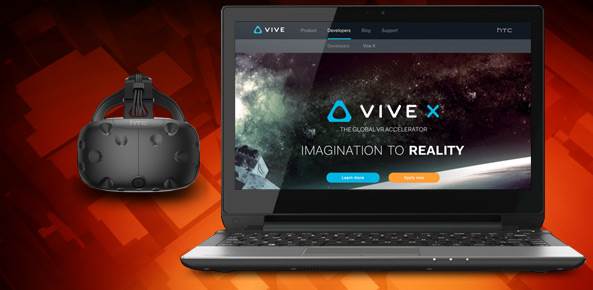A new investment fund aims to jump-start the development of virtual reality applications. VR gear maker HTC this week announced that it will lead a $ 100 million accelerator fund, called Vive X, to support VR startups.
HTC has not yet named its partners in the venture. Startups that participate in the program will get access to VR expertise, advanced VR technology, mentorships, financial investments and help getting to market, according to HTC.
Good First Step
Vive X will launch in three cities — Beijing, Taipei and San Francisco — and expand from there, HTC said. Selected startups from Asia will get to apply for Vive X next month. While VR technology is already in the process of changing the world, it needs input from all corners to expand to its full potential, HTC CEO Cher Wang said in a statement.
Stephen Marshall, a senior vice president with Greenlight VR, a provider of business intelligence for the virtual reality market, told us that the Vive X accelerator is a necessary and important step in that process.
“Our recent research on independent developers in the VR space underscores just how new and under-resourced content development is,” said Marshall. “We’re particularly encouraged that the fund appears to be targeting professional and enterprise use cases, which will probably face longer and more costly development cycles than games and entertainment.”
Enterprise Promise
The enterprise markets might be where HTC sees VR making the biggest impact. It recently announced a partnership with Dassault Systemes that is specifically designed to drive VR into the enterprise space. VR is gaining a foothold in the training of individuals in several specialized professions, such as medicine, where real-life training opportunities are crucial but rare.
HTC and Dassault plan to showcase applications for business and governments at several upcoming events, including Dassault’s Age of Experience series of events in Milan, Boston, Shanghai and London. At those events, the HTC Vive virtual reality system will demonstrate Dassault’s 3DExperience platform across applications in design, science, manufacturing and marketing.
HTC also makes the Vive VR headset, priced at $ 799 for the full system. The Oculus Rift system, priced at $ 599, began shipping in March. IDC recently predicted that the market for VR hardware such as the Vive headset is due to explode thanks to new offerings not only from HTC and Oculus, but also bigger tech companies such as Samsung. IDC projected shipments of 9.6 million VR hardware products this year, reaching close to 65 million devices by 2020.
Despite the optimistic projections, VR has tended to create excitement mostly among the tech media and early adopters. A recent survey by the Horizon Media research firm found that about two-thirds of the 3,000 U.S. citizens it polled were unaware of VR technology.
Image Credit: Vive X screenshot (pictured above, right) and Vive VR headset (pictured above, left) via HTC.







